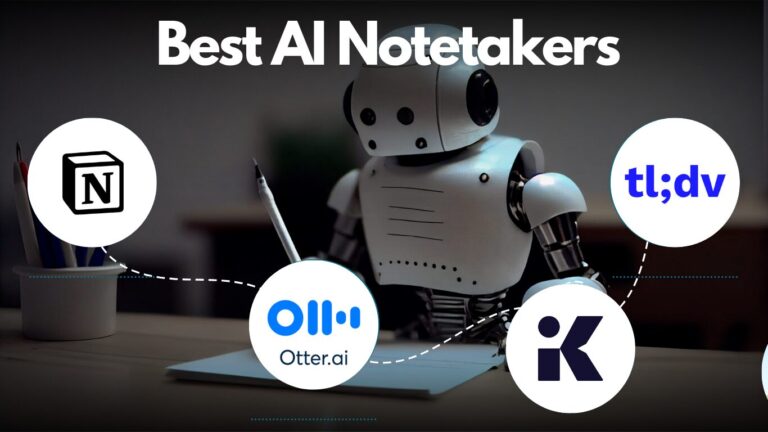ChatGPT is an AI model developed by OpenAI, designed to generate human-like text based on the input it receives. It stands for “Chat Generative Pre-trained Transformer.” Essentially, it’s a sophisticated language model that can understand and generate text in a conversational manner. ChatGPT is trained on a vast amount of text data and uses a deep learning architecture called Transformers to understand and generate responses to prompts or questions. It’s used in various applications, including chatbots, virtual assistants, content generation, and more, to simulate human-like conversation and provide useful responses to users.
The key features of ChatGPT include:
- Natural Language Understanding: ChatGPT has the ability to understand natural language input from users, allowing it to comprehend a wide range of questions, prompts, and conversational contexts.
- Contextual Responses: It generates responses based on the context of the conversation, taking into account the preceding dialogue to provide relevant and coherent answers.
- Conversational Flow: ChatGPT maintains a conversational flow by responding contextually to the user’s queries, enabling fluid and engaging interactions similar to human conversation.
- Multimodal Inputs: It can process various types of inputs, including text, images, and audio, to provide more versatile and interactive responses.
- Adaptability: ChatGPT can adapt its responses based on user feedback and the evolving context of the conversation, improving its performance over time.
- Extensibility: Developers can fine-tune ChatGPT or integrate additional modules to enhance its capabilities and customize its behavior for specific applications or use cases.
- Ethical Considerations: ChatGPT incorporates safeguards to promote ethical use, such as filtering out inappropriate content and avoiding biased or harmful responses.
- Multi-Turn Dialogue: It supports multi-turn dialogue, allowing users to engage in extended conversations with ChatGPT and maintain continuity across multiple interactions.
Table of Contents
How does ChatGPT work?
ChatGPT is based on a deep learning architecture called Transformers, which processes input text and generates output text using a sequence-to-sequence approach. It’s pre-trained on a large dataset of text from the internet and fine-tuned for specific tasks or applications.
What can I use ChatGPT for?
ChatGPT can be used for a variety of applications, including chatbots, virtual assistants, content generation, language translation, and more. It’s versatile and adaptable, making it suitable for a wide range of natural language processing tasks.
Is ChatGPT capable of understanding context?
Yes, ChatGPT is designed to understand context and generate responses that are appropriate based on the preceding dialogue. It maintains a conversational flow by considering the context of the conversation and providing relevant answers.
Can ChatGPT generate responses in multiple languages?
While ChatGPT is primarily trained on English text, it can generate responses in multiple languages with varying degrees of proficiency. There are also versions of ChatGPT trained specifically for other languages, such as Chinese, Spanish, and French.
How accurate is ChatGPT?
The accuracy of ChatGPT depends on various factors, including the quality of the training data, the complexity of the task, and the specific version of the model being used. Generally, ChatGPT performs well in generating coherent and contextually relevant responses, but it may occasionally produce errors or nonsensical output.
Is ChatGPT biased?
ChatGPT strives to be unbiased and impartial in its responses, but like any AI model, it may reflect biases present in the training data. OpenAI takes measures to mitigate bias in ChatGPT by carefully curating and filtering the training data and implementing fairness and transparency guidelines.
Can ChatGPT be used for malicious purposes?
While ChatGPT is primarily intended for positive and productive applications, there is potential for misuse by individuals or organizations seeking to generate harmful or misleading content. OpenAI encourages responsible use of ChatGPT and provides guidelines for ethical deployment to mitigate potential risks.
ChatGPT can be really helpful for learning about various topics because it’s like having a knowledgeable friend who can explain things to you in simple terms. Imagine you’re trying to understand a complex subject like quantum physics or history. Instead of reading through dense textbooks or trying to decipher complicated articles, you can just ask ChatGPT to break it down for you. Whether you’re curious about the theory of relativity or the French Revolution, ChatGPT can provide clear explanations and answer your questions in a way that’s easy to understand. It’s like having a patient tutor who’s always available to help you grasp new concepts and deepen your understanding of the world around you.
Also Read ➤ ➤ 20+ ChatGPT Prompts to learn about Bots | Make NOW!
The Main Agenda – Best Chat GPT Prompts to learn about any topic
Basic Explanation
- What is [topic]?
- How does [topic] work?
- Why is [topic] important?
- What are the main parts of [topic]?
- What does [topic] mean?
- Can you give an overview of [topic]?
- What are the basics of [topic]?
- What is the purpose of [topic]?
- How is [topic] used in everyday life?
- What should I know about [topic]?
Also Read ➤ ➤ 100+ ChatGPT Prompts for learning About AI | Check NOW!
Detailed Explanation
- Can you explain the details of [topic]?
- How does [specific aspect of topic] function?
- What are the main components of [topic] and how do they interact?
- What processes are involved in [topic]?
- Can you describe the different parts of [topic] in detail?
- How does [topic] affect [related field or subject]?
- What are the underlying principles of [topic]?
- How do experts understand [topic]?
- What are the key details of [topic]?
- Can you provide an in-depth explanation of [topic]?
Historical Context
- What is the history of [topic]?
- How did [topic] begin?
- Who discovered [topic] and when?
- How has [topic] changed over time?
- What were the key events in the history of [topic]?
- How did [topic] evolve?
- What are the historical milestones of [topic]?
- How has the understanding of [topic] developed?
- What are the origins of [topic]?
- What is the historical significance of [topic]?
Also Read ➤ ➤ 50+ ChatGPT Prompts for College Projects | SOLVE NOW!
Comparisons
- How does [topic] compare to [another topic]?
- What are the differences between [topic] and [another topic]?
- How is [topic] similar to [another topic]?
- What makes [topic] different from [another topic]?
- Can you compare [topic] with [another topic]?
- What are the pros and cons of [topic] vs. [another topic]?
- How does [topic] stand out from [another topic]?
- What are the similarities between [topic] and [another topic]?
- How do [topic] and [another topic] relate to each other?
- Which is better: [topic] or [another topic]?
Applications and Examples
- How is [topic] used in real life?
- What are some examples of [topic]?
- How do people apply [topic] in their work?
- What are some practical uses of [topic]?
- Can you give examples of [topic] in action?
- What industries use [topic]?
- How does [topic] benefit society?
- What are the applications of [topic] in technology?
- How is [topic] used in everyday situations?
- What are some success stories involving [topic]?
Also Read ➤ ➤ 80+ ChatGPT Prompts for Facebook Ads | USE NOW!
Advantages and Disadvantages
- What are the benefits of [topic]?
- What are the drawbacks of [topic]?
- How does [topic] help people?
- What are the potential problems with [topic]?
- What are the pros and cons of [topic]?
- Why should people consider [topic]?
- What are the risks associated with [topic]?
- How can [topic] improve [related area]?
- What are the limitations of [topic]?
- Why might [topic] be controversial?
Step-by-Step Processes
- How do you do [topic] step by step?
- What are the steps involved in [topic]?
- Can you explain the process of [topic]?
- How do you start with [topic]?
- What is the first step in [topic]?
- What happens after you start [topic]?
- How do you complete [topic]?
- What should you do to finish [topic]?
- Can you break down [topic] into simple steps?
- What are the key stages of [topic]?
Also Read ➤ ➤ 80+ ChatGPT Prompts for Project Managers | DIVE NOW!
Common Misconceptions
- What are some common myths about [topic]?
- What do people often get wrong about [topic]?
- What are the biggest misunderstandings about [topic]?
- What are some incorrect beliefs about [topic]?
- How is [topic] often misinterpreted?
- What do people mistakenly think about [topic]?
- What are the false assumptions about [topic]?
- What are the typical errors in understanding [topic]?
- How do misconceptions about [topic] arise?
- What are the myths vs. facts about [topic]?
Key Figures and Contributions
- Who are the main people involved in [topic]?
- Who made significant contributions to [topic]?
- Who are the pioneers of [topic]?
- What are the key discoveries in [topic]?
- Who are the experts in [topic]?
- What are the major achievements in [topic]?
- Who are the leaders in [topic]?
- Who has influenced the field of [topic] the most?
- What are the notable works in [topic]?
- Who are the prominent researchers in [topic]?
Current Trends and Future Directions
- What are the latest developments in [topic]?
- How is [topic] evolving today?
- What are the current trends in [topic]?
- Where is [topic] heading in the future?
- What are the future prospects of [topic]?
- How is [topic] expected to change?
- What innovations are happening in [topic]?
- What are the upcoming challenges in [topic]?
- What is the future potential of [topic]?
- How will [topic] shape the future?
Also Read ➤ ➤ 30+ ChatGPT Prompts for LinkedIn Posts | Try NOW!
Interactive Learning
- Can you quiz me on [topic]?
- What are some questions to test my knowledge of [topic]?
- Can you give me a practice test on [topic]?
- What are some good quiz questions about [topic]?
- How can I test my understanding of [topic]?
- What are some challenges related to [topic]?
- Can you create a trivia game about [topic]?
- What are some multiple-choice questions on [topic]?
- Can you give me a true or false quiz on [topic]?
- How can I practice what I’ve learned about [topic]?
Also Read ➤ ➤ 115+ ChatGPT Prompts for Google Ads | Try NOW!
Conclusion
Using ChatGPT for learning about any topic can be highly effective, thanks to its ability to generate human-like text and respond to a wide range of queries. As an advanced AI developed by OpenAI, ChatGPT offers numerous features that make it an invaluable tool for education and self-improvement. With its natural language understanding, contextual responses, and adaptability, ChatGPT can break down complex subjects into easily digestible explanations, making learning more accessible and engaging.
The 100+ prompts provided in this guide are designed to leverage ChatGPT’s capabilities to their fullest. Whether you’re seeking a basic understanding, a detailed explanation, historical context, or comparisons, these prompts can guide your inquiry and deepen your knowledge. They also cover applications, advantages and disadvantages, step-by-step processes, common misconceptions, key figures and contributions, current trends, and future directions, ensuring a comprehensive exploration of any topic. Additionally, interactive learning prompts can help test your knowledge and reinforce what you’ve learned.
By utilizing these prompts, learners can effectively use ChatGPT to gain insights into a wide array of subjects, making the process of acquiring new information both efficient and enjoyable. ChatGPT acts like a knowledgeable and patient tutor, always ready to provide clear explanations and engage in meaningful discussions, thus enriching the learning experience.









